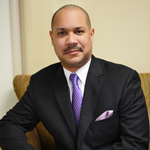When Marc H. Rubinstein joined Affinity Gaming in February 2011, he had nearly three decades of experience behind him, including a six-year stint working under Steve Wynn, the business magnate who played a pivotal role in the 1990s resurgence of the Las Vegas Strip by building widely recognized resorts that include the Mirage and Bellagio, among others. But Rubinstein’s perspective in the casino industry is unique: he’s not a gamer, but a lawyer. Rubinstein, the senior vice president, general counsel, and secretary at Affinity Gaming, looks back at the lessons he learned cutting his teeth in one of the nation’s most glamorized industries.
1. Be patient
It’s normally a long road to any general counsel position, and with all of the consolidation occurring in the gaming industry, Rubinstein says jobs such as his are fewer and farther between. His route to the top, however, was circuitous: After receiving a law degree from New York University in 1986, the Ellenville, New York native initially worked in litigation at Lionel Sawyer & Collins. Later, he worked in gaming law as well, but it was six years before he got his first in-house role as general counsel at Caesars Palace, in 1992. “I was only 31, but I’d worked on a lot of highly publicized matters, including the litigation surrounding a 19-year-old Arkansas man who’d hit a million-dollar jackpot and wasn’t allowed to collect it because he was underage,” says Rubinstein, who stayed at Caesars Palace for seven years. “We won at every turn.”
2. Be a little reckless
When Wynn sold Mirage Resorts and acquired the Desert Inn in 2000, he approached Rubinstein about taking the new company public. Rubinstein was admittedly unprepared. “I’d worked for a handful of casinos, but hadn’t dealt with financing, securities, development, or mergers and acquisitions,” Rubinstein says. “But Steve trusted that I’d be able to transition to a larger role and gave me an opportunity no one else on the planet would have been willing to give me. I watched and learned on the job, and ultimately took the company public and helped open a 3,000-room, 5000-employee resort in Las Vegas.”
Barry I. Slotnick, head of litigation for Buchanan Ingersoll & Rooney’s New York office, worked with Rubinstein when he was general counsel for the Wynn organization, and describes Rubinstein’s prowess for the job. “He quickly understood the issues and worked well with me in crafting solutions,” Slotnick says.

3. Don’t be afraid to fail
When Rubinstein left Wynn in 2006, he joined the Cosmopolitan Resort, an entrepreneurial venture with a single owner. The timing was bad, however. Shoehorned on less than eight acres, the resort included the sale of condominiums, a first in Las Vegas, at least on that scale. “We had a ton of sales on the books, but when the economy cratered, the writing was on the wall that we wouldn’t be able to close those sales, so the economics of the development changed dramatically, and the principal construction lender closed on the property,” recalls Rubinstein.
Rather than wallowing in self-pity, Rubinstein parlayed his experience with a struggling development into a new job at Tropicana Entertainment, which was then in bankruptcy. He helped bring it back to life before leaving in 2011 to join what is now Affinity Gaming.
4. Remain calm
“I know it’s a cliché, but I like to say you have two ears and one mouth for a reason,” says Rubinstein. He speaks to the importance of resisting the temptation to give an immediate answer, especially when working with high-powered people such as Steve Wynn, many of whom have a heightened sense of urgency.
“You may need to move more quickly than you’re inclined to move, but you can’t let other people’s emotions drive yours,” notes Rubinstein, whose sense of calm drove at least one former boss crazy. “He’d get all riled up about something, and I’d be incredibly stoic, but I think it’s part of the role of a general counsel to be stoic. Someone needs to determine whether there really is a crisis, and someone needs to be that center of calm if it is.” Moreover, according to Slotnick, Rubinstein “was always calm during periods of great stress.”
5. Advocate for your client
The gaming industry is highly regulated, and Rubinstein says there are some attorneys, particularly those in private practice, who are overly concerned about their relationship with regulators and will sometimes kowtow to them. “That’s not necessary,” Rubinstein says. “I’ve learned to respect the regulators, but it’s also important to remember that you’re representing a client, and you have an ethical obligation to do so zealously. You can’t be afraid to take an aggressive position if you feel it’s defensible. Good regulators understand you have a job to do and that you’re an advocate.”
6. Try to avoid saying no
As a general counsel, Rubinstein says your role is to try to solve problems. “The one habit you don’t want to get into—and this is true in every industry—is telling businesspeople no,” he says. “You want to find a way to get to ‘yes’ that keeps you on solid regulatory footing and doesn’t get the company in trouble, but lets your business people run the business the way they need to run it.”
That said, Rubinstein cautions about caring too much when businesspeople don’t follow your advice. “I try to remind myself that my job is to avoid or minimize risk, but at the end of the day, if the businesspeople understand the risk and make a determination to move forward notwithstanding the risk, that’s okay, so long as they are not betting the company,” he says. “That’s what they are there to do.”

